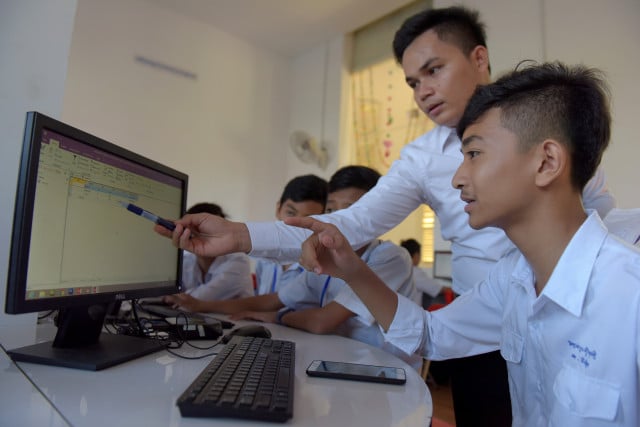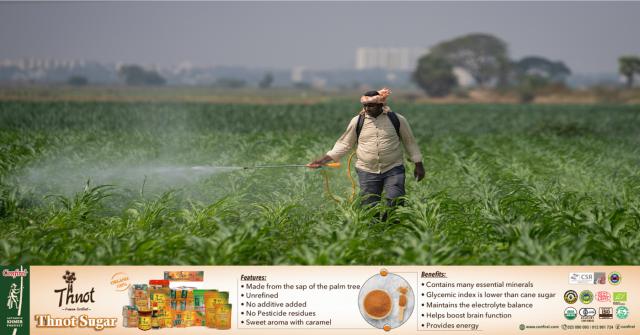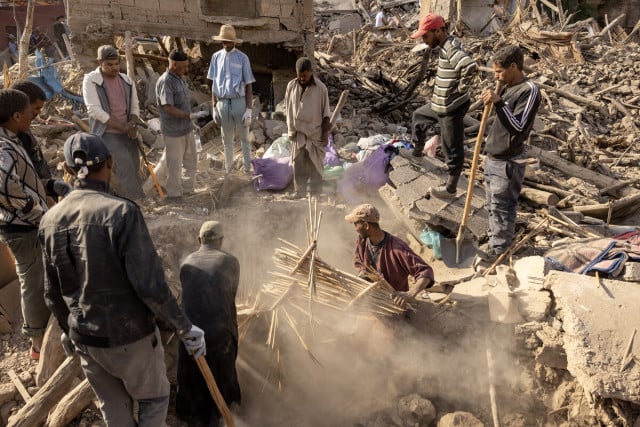Nurturing a Strong Research Culture in Cambodia: The Role of a Home-Grown Research Culture

- Kimkong Heng and Tuomo Rautakivi
- December 21, 2020 8:34 AM
Developing a research culture requires active involvement from all layers of the society, including the government, the private sector, development partners, communities, institutions and individuals (Heng, 2020a).
These actors need to do their part and work together to contribute to the development of a viable research culture in Cambodia. As Yolles (2019) noted, without our own culture, there is no development, which means that without research culture, there is no research development. Research culture is pre-condition for research development and development needs cultural knowledge and ability to accumulate knowledge.
The process of fostering a strong research culture requires concerted efforts, genuine commitment, clear vision and even changes in mindset at all levels of the society, including the national, institutional and individual levels. Thus, policy attention and collaboration across different dimensions in the society are needed to address at least four key challenges: a lack of a vibrant research culture, lack of capable and willing research advisors, inadequacy of local research journals and lack of financial support and positive reinforcement.
Key Challenges to Developing a Research Culture in Cambodia
In Cambodia, a research culture is still underdeveloped although recent developments have presented a new hope for the development of research and publication (Heng, 2020b). We believe that there is no research development without a strong research culture, so the first step is to develop the research culture and system. Many, if not most, Cambodian students begin to learn about research only when they are in higher education. Any serious research courses are not offered before students reach their third year of their bachelor's degree program, and they generally study it for only one or two semesters. Very few go on to conduct empirical research in their final year to fulfil the requirements of their degree programs.
Meanwhile, with some exceptions, many students pursuing a master's degree prefer to take a non-thesis option to fulfil the requirements for graduation rather than pursue a research track that requires thesis option (i.e., writing a research report or a thesis). Some students who wish to write research reports are unfortunately not able to do so because there are no research advisors who can or are willing to guide them. Some lecturers are reluctant to supervise research students because they themselves lack research experience. To address these issues, it is perhaps important to ask questions, such as “What are the reasons or benefits of doing research?” and “What are the positive reinforcement and financial support for conducting adequate and high-quality research?”
Regarding research activities in doctoral programs, there are concerns that many students who graduate with a PhD degree from some local universities are not able to conduct and write quality research reports or articles because of the lack of research and writing skills and the lack of routine to write in academic language (see Heng, 2020c; Ry, 2019). These PhD students and graduates are the hope for the development of a vibrant research culture in Cambodia; however, since many could not conduct and publish research in local or international journals. The prospect for research development in the country is very limited and we must note here again that without one’s own research culture, there is no genuine research development.
Within the context of the limited interest in research and the underdeveloped research culture, the lack of local publication outlets such as journals further constraints the overall development of academic research in Cambodia. Our analysis of the website of various Cambodian universities shows that only a few universities, such as the Royal University of Phnom Penh and the University of Cambodia, host journals that have open calls for submissions. There is clearly a need for establishing more local publication outlets to foster a culture of research including writing, knowledge sharing, and research and publication. Many universities either do not have journals or have ones that do not match the international standard of academic journals in terms of quality, procedure, criteria and even journal platforms.
Ideas to Develop a Vibrant Research Culture in Cambodia
As noted earlier, of central importance is the establishment of publishing platforms in Cambodia. In this article, we propose some essential components which may positively boost Cambodian academics’ research skills and capacity. It is, however, worth noting that there are many other factors that contribute to the development, quality and amount of research (see Heng, Hamid, & Khan, 2020), but in this short article we are unable to include everything, so we concentrate only on a few issues.
To nurture a vibrant research culture in Cambodia, we need active involvement from all concerned stakeholders at three different levels: national, institutional and individual. We believe that some Cambodian students and teachers are capable of conducting and publishing research independently. With sufficient support from their institution and ample opportunities, many Cambodian lecturers, scholars, and even research students would be able to pursue their own research interests and write research articles. However, what they really need to realise their potential is mentoring support from critical friends, colleagues, research mentors or advisors and research networks, both domestically and internationally. Research networks are not too difficult to establish because Cambodia may be seen as interesting partner or even a desired partner in different research networks. Cambodian students, teachers and novice researchers also need someone or a system to encourage them, push them and give them the right direction.
No doubt, it is hard for them to do research at first, but once they have conducted a few or several research studies alongside their more experienced friends, colleagues and mentors, they will have more confidence and better ability to conduct research on their own. Thus, it is vital to build a culture of collaboration, mentorship and community of research practice to foster a healthy research culture (see Keuk, 2015). We believe that the human potential may not be the most critical issue or constraining factor because there are many capable Cambodian scholars and researchers, some of whom are working in respected universities around the world.
Engaging in high quality research and publication certainly requires time and that time is away from other activities, including of course time away from economic activities such as extra teaching, private teaching or consulting works and so on. These extracurricular activities mainly aim to increase wealth, while research activities generally do not focus on accumulating economic or social wellbeing. Given their low academic salary, many Cambodian lecturers and researchers need to focus on teaching and consultation to make their ends meet, seriously limiting their capacity to actively engage in academic research (see Ros & Oleksiyenko, 2018).
Academic writers do need positive reinforcement and feedback as well as financial support. Why should one do research if there is no support or positive reinforcement such as incentives or promotion? Many countries – for example, Thailand – have a research bonus system, which is based on the Scimago Q1-Q4 Journal Ranking system. That bonus system may increase the interest in research and publications. In fact, the bonus system is a relatively economical way to create attraction for research and publication, and it is one of the effective ways to show respect for scholars or researchers.
The Way Forward
Moving forward, we need to expand the availability of local academic journals and other types of publication outlets. The lack of local journals in Cambodia significantly limits the development of new writers or researchers who may not have the capacity to publish their research in regional or international journals. They may need some publication experience, starting from publishing their work in local journals first. Once their research knowledge and confidence have improved, they can attempt to publish their work in reputable or international journals.
Thus, all stakeholders in Cambodia, especially the Ministry of Education, Youth and Sport and major higher education institutions, need to work together to accelerate the establishment of Cambodia Citation Index (CCI) by developing a national research database and procedures or standards for publication quality. Greater efforts should be made to establish national journals and more institution-based journals. It may be a long way to go for Cambodia whose dynamic research culture is currently missing. Nevertheless, with a clear, research-focused vision, strong commitment and active collaboration from all key actors, there is reason to believe that Cambodia can enhance its national research environment and develop a strong research culture needed to bolster its competitiveness in the region. We do not suggest a research culture well-developed like that in America or Europe, but one that can provide adequate evidence-based policy formulation, information and services for Cambodia, allowing it to share science and research knowledge in the region, particularly among ASEAN countries equally.
Even though there are many things to do to nurture a vibrant research culture in Cambodia, it is imperative to start somewhere to build a positive research momentum. One of the first steps would be to establish more local journals, improve their quality and develop Cambodia Citation Index (CCI). Creating a national research database would bring about the interest and positive attitude towards research, enabling the development of a vigorous research and publication culture.
Obviously, a strong research culture cannot be built overnight, and it is by no means easy to promote research in a resource-scarce environment such as Cambodia. Yet now is not the time to lament and lose hope. In fact, it is the time to take the initiative, work together constructively and endeavour to make a difference. Once all key actors can collaborate and work towards a common research-oriented goal and vision, a vibrant research culture in Cambodia will take shape and together we can do it.
Kimkong Heng is a co-founder of Cambodian Education Forum. He is currently pursuing PhD in education at the University of Queensland in Australia under the Australian Awards Scholarship. He was an English lecturer at the University of Cambodia and a visiting senior fellow at the Cambodian Institute for Cooperation and Peace.
Dr. Tuomo Rautakivi is Visiting (Full) Professor at Royal University of Phnom Penh. He is a public administration specialist in Thailand and has served for many years as University Lecturer (Public Administration) in Burapha University in Thailand. He created first ASEAN courses in Thailand for Siam University. He has published widely in international journals. He also has experience leading and managing international research projects and journals. Currently, he is also Honorary Consul of Finland in Pattaya.
This article was first published by Cambodia Development Center on December 11, 2020.















